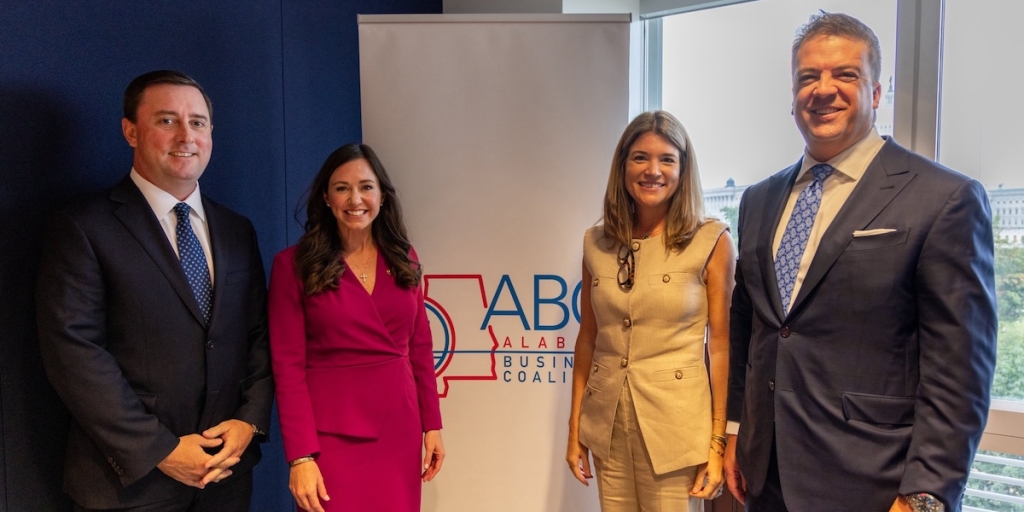As Alabama heads into the post-pandemic economy, roadblocks exist that stand in the way of returning to pre-COVID activity.
As part of the Yellowhammer News Connect to your Future series, the following serves as an informational piece outlining the state’s shortage of skilled labor.
“Now Hiring” signs can be seen displayed at nearly every community corner. From industrial parks, downtown squares and all places in between, businesses are in search of labor. Yet, it has become increasingly difficult for businesses to find qualified workers.
The increased demand for labor nationwide can be attributed to conditions made possible by varying policies undertaken by government in an effort to mitigate damage brought about by COVID-19, such as stimulus payments, lockdowns and entitlements, among others. Consequently, this has paved the way for fewer laborers seeking to reenter the workforce.
In addition, CNBC recently reported that aging workers have left the labor market and instead have opted to retire due to the recent success of markets driving retirement funds to higher balances.
While some of the underlying issues which have caused the labor shortage appear to have caused only short-term effects, a more lingering, long-term issue is the short supply of high-skilled workers.
Financial services company ING published an economic analysis piece detailing the need for skilled labor, which noted that “the lack of skilled workers is not only just another symptom of post-lockdown economics but also the result of more fundamental developments.”
According to a survey conducted by the National Association of Business Economics, nearly 47% of participating companies reported a shortage of skilled labor in the third quarter.
While the pandemic certainly highlighted the shortage of qualified workers, the issue is far from new. Industries across Alabama have long sought skilled labor to fill in-demand jobs which are critical to success in the 21st century economy.
Alabama has seen enormous economic growth in recent years as industry has flocked to the state to take advantage of its pro-business economic policy climate. While this is a net positive for the state’s long-term outlook, it has called attention to the need for laborers who possess the skills necessary to meet industrial production needs.
As the use of new technology in the workplace continues to increase, dynamic job opportunities await those willing to enter exciting, new emerging fields in STEM and other areas of employment.
Perhaps one of the most prominent barriers that stand in the way of solving the issue of skilled labor shortage is the misconception among high school students that an individual must possess a four-year college degree in order to obtain a rewarding, well-paying career.
Rather than accumulating massive debt that is required to complete a traditional college degree, students can take advantage of more financially feasible educational opportunities while studying in-demand career fields. In today’s job market, this increases the likelihood of the individual landing a career with a higher salary than those who do not possess in-demand skills.
Opportunities not only await young workforce entrants but also workers who find themselves in mid-career. Employment opportunities in welding, pipefitting, plumbing, automotive, carpentry, nursing, education and virtually all engineering and manufacturing disciplines among other careers are available to those who acquire the necessary skills.
Basic economics has taught us that when demand outpaces supply, the product’s value increases due to it being a highly sought after item. In this case, the highly valued product is the worker. Economic conditions have made paved the way for a prime job market for the skilled laborer. In today’s job landscape, those who are equipped with in-demand skills find themselves extremely marketable.
Leading state workforce development entities are seeking to launch and expand innovative programs aimed at solving Alabama’s labor shortage. These entities are not only making individuals aware of opportunities that exist, but they are also forging new opportunities to broaden the scope of internships, apprenticeships and certificate programs.
In forthcoming pieces of Yellowhammer News’ Connect to Your Future series, readers will be made aware of recent initiatives undertaken by these entities. With their leadership, Alabama’s workforce is sure to be well-positioned to meet industry demand.
Thank you to our “Connect to your Future” sponsors: Alabama Power, Alabama Works and Manufacture Alabama for making this initiative possible.
Dylan Smith is a staff writer for Yellowhammer News. You can follow him on Twitter @DylanSmithAL













